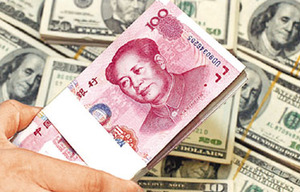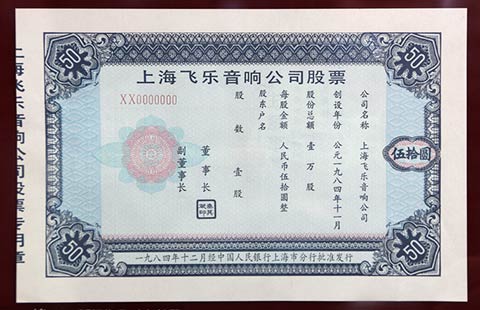Investors turning to Chinese bonds for better yields
(Agencies) Updated: 2014-10-25 08:37Global investors are helping drive China's biggest bond rally since 2008, drawn by the widest yield advantage over US Treasury securities among similarly rated nations as the authorities grant increased access to domestic markets.
Foreign holdings of local notes surged 59 percent this year, pushing the Bank of America Merrill Lynch China Broad Market index of the nation's publicly traded sovereign and corporate debt to climb 8 percent, the most in six years.
The yield on two-year government securities is 312 basis points higher than that of Treasuries, the biggest gap among nations graded Aa3 by Moody's Investors Service.
China has been easing restrictions on the flow of capital from world financial hubs to push greater global use of the yuan. Quotas totaling 640 billion yuan ($104 billion) have been granted to invest offshore yuan in domestic securities and a trading link between the Hong Kong and Shanghai stock markets is set to begin soon.
Premier Li Keqiang has called for lower financing costs to support small businesses and prevent any systemic risks, boosting bonds.
"China's government notes offer the biggest bond-market opportunity in the world," Jan Dehn, London-based head of research at Ashmore Group Plc, which oversees $71.3 billion of emerging-market assets, said in an interview in Singapore this week.
"They have zero correlation with the Treasury market. Interest rates in China are a function of growth and inflation and monetary policy in China."
The People's Bank of China, the central bank, has cut reserve requirement ratios for some lenders and provided liquidity to selected banks to encourage lending and control any fallout from rising debt, which Standard Chartered estimated to be 251 percent of gross domestic product as of June.
Overseas entities have increased their bond positions for nine consecutive months, with their holdings rising 6.7 percent in September to 634.14 billion yuan - the biggest gain since March, according to PBOC data.
Two-year Chinese government notes yielded 3.51 percent on Thursday while consumer prices rose only 1.6 percent in September from a year earlier, the slowest pace since January 2010. Yields on similar-maturity sovereign bonds in Chile were 3.22 percent, and in South Korea 2.15 percent on the same day, which have the same Moody's rating as China's, while that on US Treasuries was 0.37 percent.
The yuan climbed to 6.1172 per dollar on Wednesday, the strongest level since March. The yuan's Sharpe ratio, which measures returns adjusted for price swings, is 4.2 so far in the second half, second only to Argentina's peso. The Chinese currency has trimmed its loss for the year to 1.1 percent.
"The low volatility of the yuan and high yields are among the main reasons to invest in onshore yuan bonds," said Ken Hu, Hong Kong-based chief investment officer for Asia-Pacific fixed income at Invesco Ltd, which had $812 billion under management globally at the end of August.
China has allowed 166 overseas institutions to trade on the interbank bond market, and 81 qualified foreign institutional investors obtained licenses to buy domestic securities using the local currency as of August, according to a transcript of Monday comments from PBOC Deputy Governor Hu Xiaolian posted on the monetary authority's website.
|
 |
 |
| Govt bond yields fall most in one month on stimulus bets | China treasurybond futuresclose higher Monday |
- Amway planning national network of centers
- Ford plans network of Lincoln showrooms
- Limited impact from 'through train' delay: analysts
- China buys Colombian oil as global glut deepens
- New home prices continue to fall
- Sony taps high-end segment for growth
- Time for all Apple products to enter China
- Malaysia joins 20 countries to set up AIIB
















